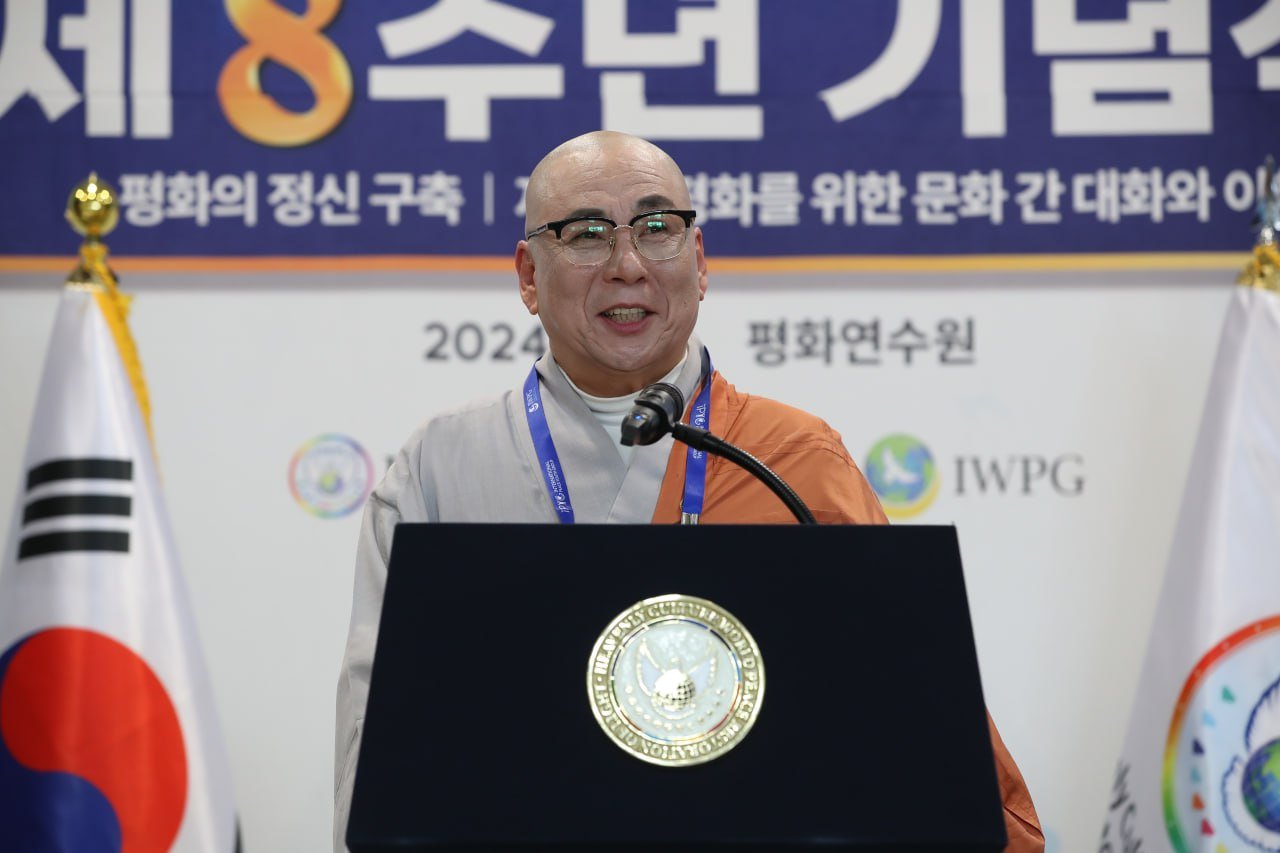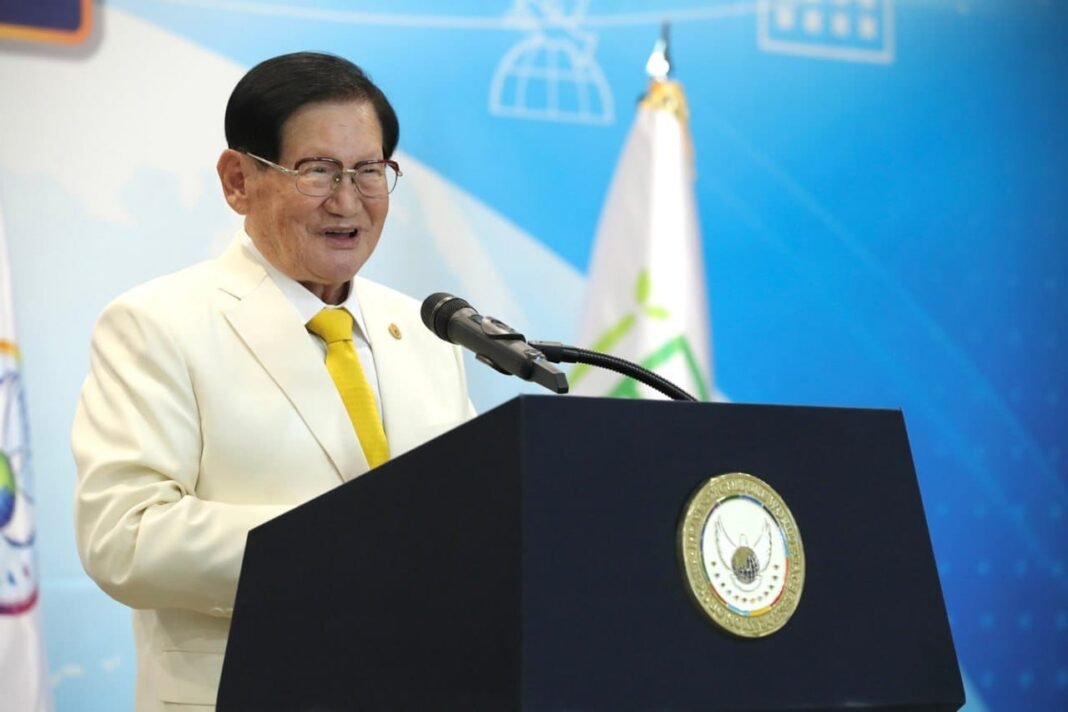Anaheim, 25 March 2024 (TDI): In 2023 alone, conflicts like the Russia-Ukraine war, the Israel-Hamas war, and numerous international disputes tragically claimed the lives of over 33,000 civilians and displaced millions.
Recognizing this dire reality, Heavenly Culture, World Peace, Restoration of Light (HWPL), an international peace NGO, held its 8th annual commemoration of the Declaration of Peace and Cessation of War (DPCW) on March 14th at its peace training institute in Gapyeong-gun, Gyeonggi-do, South Korea.
The event’s theme resonated deeply: “Building the Minds of Peace: Promoting Institutional Peace via Intercultural Dialogue and Understanding.”

Since the DPCW’s proclamation on March 14, 2016, HWPL has consistently held annual commemorative ceremonies to advocate for the institutionalization of peace. This year, the event gathered about 12,500 distinguished experts from diverse fields – political, legal, religious, educational, media, and representatives from women and youth sectors – both online and in person.
Among participants, about 10,000 HWPL members moved in an orderly manner under the guidance of staff and filled the commemorative ceremony venue.
Drafted in collaboration with international legal specialists from 15 countries, the DPCW comprises 10 articles and 38 clauses. It outlines the principles and tools necessary to prevent and resolve conflicts, cultivate a peaceful global society, and defines clear roles for individuals, communities, and nations in achieving lasting peace.
In his congratulatory speech, Vidura Wickramanayaka, Minister of Buddhasasana, Religious and Cultural Affairs of Sri Lanka, said, “The commitment and dedication shown in the pursuit of peace projects have not only been commendable but have also laid the foundation for a more harmonious world. The tireless efforts of individuals and organizations working towards the common goal of ending war and fostering understanding among nations are truly inspiring.”
As President of the Daegak Buddhism Jogye Order in South Korea, Ven. Beopsan who has been participating in interreligious dialogue for nine years, emphasized the importance of religious leaders’ participation in peacebuilding efforts including comparative study of scriptures.

He said, “Intercultural dialogue and understanding can be found at HWPL’s World Alliance of Religions’ Peace Office. The root of religion is one and its meaning is a truly noble value.”
Having pointed out that conflicts caused by religion have threatened global peace, Chairman Man-hee Lee of HWPL said, “Different religions should come together, learn each other’s values and become one by comparative study on scriptures.
Religious communities should practice faith based on scriptures, so they can live with humanity on this earth. We must create a world where people communicate, cooperate, and help each other regardless of religion,”
Lastly, the ceremony concluded with a variety of performances depicting the journey of peace. During the performance, there was a session where the contents of Article 10, 38 clauses of the DPCW were explained through performance, and expressed an image of a paradise filled with flowers where peace was achieved.
Recently, various activities are being carried out around the world to institutionalize peace. In South Asian countries including Bangladesh, Maldives, Afghanistan, Iran, India and Pakistan also joined in celebrating 8th Annual Commemoration through peace activities.
The International Peace Youth Group (IPYG), a youth organization affiliated under HWPL, held an online conference with 30 youth leaders and social organizations in order to discuss ways to strengthen the network for the peacebuilding of South Asian countries.
Sunny Rehmat Mashi, the coordinator of YDF (Youth Development Foundation) Pakistan said, “I realized that the DPCW is needed for institutionalization of peace. The power of the united youth is crucial in fulfilling international peace law.”
Also Read: Canada unveils Action Plan on Women, Peace and Security
In addition, it was attempted to expand the target of peace education to parents and citizens, which were previously focused on teachers and students at schools in India, Bangladesh and Afghanistan.
According to the HWPL, the one of objectives of this education is to recover the self-esteem of the parents, so that peace education can be practiced within family”.
Ritika Ahuja, a public school teacher (Peace educator) of Arwachin India School commented, “Thanks to HWPL who prepared such a beneficial session. This topic is definitely important for adults, not only students. The ability of understanding ourselves is helpful to peace.”
The Diplomatic Insight is a digital and print magazine focusing on diplomacy, defense, and development publishing since 2009.



